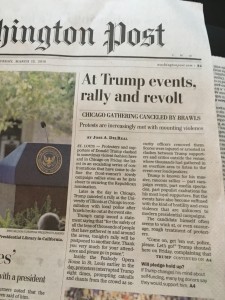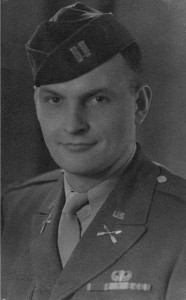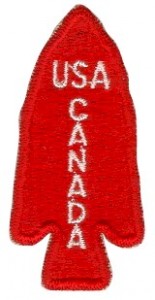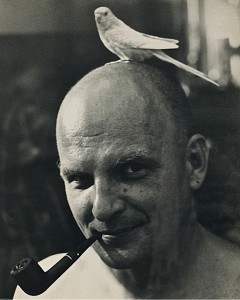 In 1946, when I was four years old, I went to Germany with my mother to join my father. He was an intelligence officer for the occupation forces after WWII. He had been one of those who liberated a number of concentration camps to free those who had been held for years in torturous conditions because of their religious beliefs and genetic makeup. At a young age I saw the remains of bombed out buildings and standing walls pocked with bullet holes. I spent time with other children my age and their families, who had lived through the Holocaust, and were happy to have Americans in their midst. I learned to speak German and was my mother’s interpreter. Of course I don’t remember any of the conversations I had with my friends, but I must have been curious about the destruction I witnessed, and surely asked questions.
In 1946, when I was four years old, I went to Germany with my mother to join my father. He was an intelligence officer for the occupation forces after WWII. He had been one of those who liberated a number of concentration camps to free those who had been held for years in torturous conditions because of their religious beliefs and genetic makeup. At a young age I saw the remains of bombed out buildings and standing walls pocked with bullet holes. I spent time with other children my age and their families, who had lived through the Holocaust, and were happy to have Americans in their midst. I learned to speak German and was my mother’s interpreter. Of course I don’t remember any of the conversations I had with my friends, but I must have been curious about the destruction I witnessed, and surely asked questions.
My parents hired a housekeeper who also took care of me when they were otherwise engaged. I have blocked her from my memory. My mother told me about her when I was older and could understand. The housekeeper was apparently a fine person, but when she heard airplanes overhead, she became hysterical. Even though the war was over, she was terrorized by her memories of the bombings that had taken place all around her. She would grab my arm and scream as she dragged me in terror to the basement of our home where we would be safe. I became afraid of the sound of airplanes myself. One day when I heard a plane overhead I suggested to my mother that we hide in the basement. The housekeeper was subsequently fired and I was left with my nightmares.
When I was in third grade, I discovered a packet of photographs that my father had taken at the camps that he and his company had liberated. I can still see the stacks of dead bodies piled one on top of another. There were images of walking skeletons making their way through the gates to freedom. When my mother found me looking at them she grabbed the photos and burned them. I don’t remember any conversations that might have followed, but those photos have been seared into my brain ever since.
I still have a deep interest in World War II and the Holocaust. As I grew up I read as much as I could, seeking answers to the burning question of how this could have happened. I even read, Andersonville, a novel by McKinley Kantor, about the 45,000 union soldiers that were held during the Civil War. And to this day I am ashamed that this country put Japanese-American citizens in interment camps during WWII.
My early education in the matters of war have clearly been something I’ve needed to learn about and have played a significant part in my diagnosis with PTSD. Though I have done much work to free myself from its grip, it can still trigger fear and anxiety. The pit of my stomach feels like it’s filled with gravel that churns like a cement mixer. “Fight or flight” sets in quickly, and I easily become paralyzed, not knowing what to do next.
For months now I have felt an icy terror growing inside of me. When I watch the news and hear Donald Trump urging his fans to “take out” protesters or anyone who looks like they might not agree with him during his rallies, I am beside myself. During one campaign rally, Trump said of one protestor: “You know what they used to do to guys like that when they were in a place like this? They’d be carried out in a stretcher, folks. I’d like to punch him in the face, I tell ya.”
Now, urged on as if by a call to war, Trump supporters and protestors alike are physically fighting it out at his rallies. Trump’s behavior and his unwillingness to stop the violence brings to mind my early experiences in Germany and what I have learned since. My concern for the future and for my children and grandchildren grows like a patch of kudzu that quickly overtakes acres of land and any buildings in its way.
I am not political by nature here on my blog, on my Facebook page or on Twitter. I try to look at the world with compassion and positivity — Surely things aren’t as bad as they seem. I believe in living in peace. Negativity only seems to make matters worse and can spread like the contents of a broken jar of molasses, seeping slowly into every nook and cranny of the world. But THIS IS A MORAL ISSUE and I must speak out and ask myself and all of those around me, how can we let this happen again? Doesn’t Trump’s hatred of Mexicans, Muslims, and anyone else who doesn’t follow his rhetoric bring us reminders of the past?
It’s the Donald Trumps of the world and their followers who bring on the violence we are seeing here in our own country. As reported by the Washington Post, John McGraw of Linden, NC said in an interview after he attacked Rakeem Jones at a Trump rally in Fayetteville, “You bet I liked it. We don’t know if he’s ISIS.” He ended the interview by saying, “He deserved it. The next time we see him, we might have to kill him. We don’t know who he is. He might be with a terrorist organization.”
We all of course, have the right to gather together and express our views. And we also have the right to peacefully protest against those with whom we do not agree. We do NOT, however, have the right to hurt those with whom we disagree. Remember the Holocaust when 6 million Jews were murdered along with anyone who resisted Hitler’s planned genocide?




